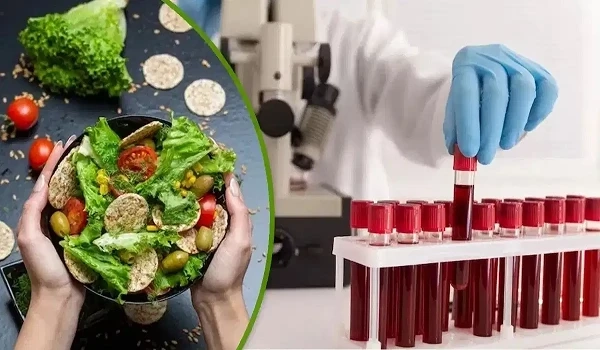Ever wondered what goes into making your favorite snack safe to eat? It’s not just about taste—it's about safety, quality, and compliance. This is where food testing labs come into play. With rising concerns about food adulteration and contamination, food testing is no longer a luxury—it's a necessity.
Understanding the Role of Food Testing Labs
Food testing labs are specialized facilities where food samples are analyzed for safety, quality, and compliance with regulatory standards. These labs run multiple scientific tests to check for harmful bacteria, chemicals, allergens, and even nutritional content.
Ensuring Safety and Quality
Testing ensures that food products are free from contamination and are safe for consumption. It also helps verify that what's on the label is what's in the package.
Preventing Foodborne Illnesses
Pathogens like Salmonella and E. coli can cause serious health issues. Timely detection through lab testing helps avoid outbreaks and protects public health.
The Importance of Food Testing in India
India has a rich and diverse food culture, but it also faces challenges like:
- Adulteration in milk, spices, oils
- Use of banned preservatives
- Poor hygiene practices in food manufacturing
With the food industry booming, especially in exports and packaged foods, food testing has become vital to maintaining trust and safety.
What is FSSAI and Why It Matters?
FSSAI stands for the Food Safety and Standards Authority of India, the apex regulatory body ensuring food safety in the country.
FSSAI’s Role
- Lays down science-based standards
- Grants licenses to food businesses
- Approves and accredits food testing labs
Choosing an FSSAI-approved lab ensures that the testing is legally valid and conducted as per standardized guidelines.
Types of Food Testing Performed
Microbiological Testing
Detects harmful bacteria, yeasts, and molds that can spoil food or cause illness.
Chemical Testing
Analyzes pesticide residues, heavy metals, and toxins in food products.
Nutritional Analysis
Determines macronutrients like carbs, fats, proteins, and micronutrients like vitamins and minerals.
Allergen Testing
Checks for allergens like gluten, nuts, dairy—critical for labeling and public health.
Adulteration Testing
Identifies harmful or banned substances added to food for illegal profit.
Who Needs Food Testing Services?
- Food Manufacturers – Ensure safety and compliance
- Hotels & Restaurants – Maintain hygiene and customer trust
- Exporters & Importers – Meet international standards
- Government Agencies – Monitor public food safety
- Food Startups – Build credibility in a competitive market
Key Benefits of Partnering with a Food Testing Lab
- Regulatory Compliance – Stay in line with FSSAI and other standards
- Brand Trust – Consumers trust brands that test and verify
- Reduced Risk – Avoid legal trouble and product recalls
- Product Improvement – Enhance quality based on scientific data
How to Choose the Right Food Testing Lab
When choosing a lab, keep the following in mind:
- Accreditation – FSSAI-approved and NABL-accredited
- Services Offered – Broad range from nutrition to pathogens
- Technology Used – Modern equipment = accurate results
- Turnaround Time – Fast, reliable reporting
- Customer Support – Transparent communication
Why FSSAI-Approval is Non-Negotiable
An FSSAI-approved lab is not just about credibility—it’s about legality. Non-approved labs’ reports might be rejected by authorities. Plus, you risk inaccurate or outdated testing methods.
Introducing EKO Testing Labs (Eko Pro Engineers Pvt. Ltd.)
EKO Testing Labs, a part of Eko Pro Engineers Pvt. Ltd., is a trusted name in the field of food testing.
📞 Call: +919818814009
Why Choose EKO Testing Labs?
- FSSAI-approved
- NABL-accredited
- ISO certified
- Quick, reliable, and affordable services
- Decades of industry experience
Service Areas of EKO Testing Labs
Serving across:
- Delhi
- Noida
- Ghaziabad
- NCR and beyond
We provide doorstep sample collection, customized testing packages, and dedicated food safety consultations.
Step-by-Step Process: How Food is Tested at EKO Testing Labs
- Sample Collection – Hygienic and traceable pickup
- Lab Analysis – Performed under controlled, modern conditions
- Report Generation – Transparent, detailed, and easy to understand
- Post-Testing Consultation – Assistance in compliance or corrective actions
Certifications & Accreditations
- FSSAI Approved
- NABL Accredited
- ISO 17025 Compliant
These recognitions confirm the reliability and authority of our testing results.
Case Studies and Success Stories
We’ve helped:
- A spice exporter eliminate harmful residues and expand to EU markets
- A dairy startup identify adulteration and launch a premium brand
- A hotel chain prevent a food poisoning scare through proactive testing
Future of Food Testing in India
The industry is moving toward:
- Automation & AI-based testing
- Blockchain-enabled traceability
- Eco-friendly & plant-based food testing
- Instant testing kits for field use
Food testing is no longer reactive—it’s predictive.
Conclusion
Food safety is not optional—it's essential. And while home kitchens rely on trust, the commercial food world runs on testing and compliance. A reputed, FSSAI-approved lab like EKO Testing Labs makes all the difference.
If you're in the food business, make the smart move—test before you serve!
📞 Contact EKO Testing Labs Today: +919818814009
FAQs
1. What makes a food testing lab reliable?
A reliable lab is FSSAI-approved, NABL-accredited, uses modern tech, and delivers transparent reports.
2. How often should food be tested?
It depends on the type of food and your operations, but regular testing—monthly or quarterly—is recommended.
3. What is the cost of food testing in India?
Costs vary based on the type of test, but basic panels can start from ₹1,000 onwards.
4. Can individuals get their food tested?
Yes, individuals can test for adulteration, nutrition, or contamination through certified labs.
5. How long does testing typically take?
Standard tests take 3–5 days, but urgent services are also available.



